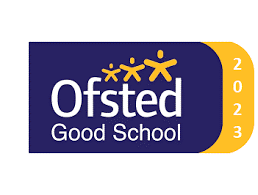Promoting British Values
The governing body of Quainton Church of England School is made up of 10 members from the local community and we have different professional backgrounds. We are all very passionate about the school and the children. We are highly involved in school life and actively seek to promote the broader aims of the school in the community.
The Values and How We Promote Them
Democracy
- We have a school council that meets regularly, comprising two elected representatives from each class. They enable the opinions of children to be listened to and acted upon appropriately. Council meetings promote democracy and the electoral process.
- The origins of democracy are taught through the studies of the civilisation of Ancient Greece.
- Democracy is promoted in our relevant curriculum topics, as well as in PSHE and collective worship.
- Circle Time is used to democratically discuss any problems or concerns children have.
- Key Stage 2 children are encouraged to develop their debating skills in the literacy lessons.
- Upper Key Stage 2 children read the weekly children’s newspaper, ‘First News’, and discuss the themes within it.
The Rule of Law
- We have high expectations of pupil behaviour as reflected in our Behaviour Policy, Anti-Bullying Policy, Code of Conduct and Equality Policy. Good behaviour consistent with those policies and our school values, is rewarded by the Team Points Certificates and Value Stars handed out in our weekly celebration assemblies.
- As part of our Behaviour Policy, parents are informed when problems arise and are expected to be involved in resolving them.
- Upon admission, parents are asked to sign a copy of the Behaviour Policy and the home school agreement.
- Our school values, Circle Time, PSHE lessons and the Christian texts that underpin them, teach children about respect, trust, honesty and forgiveness. Children are also supported when thinking about how to make the right decision, even when it is a difficult one.
- Reception and Key Stage 1 children are encouraged to reflect on their behaviour through ‘time out/thinking time’ and the phrase, ‘make the right choice’,
- The values and expectations of good behaviour apply equally to school trips, visitors and events with other schools.
- Class rules are discussed and drawn up at the beginning of each academic year.
Individual Liberty
- Through our school values, aims, curriculum, particularly PSHE and Circle Time and, by instilling our children with a growth mindset, they learn about the importance of personal responsibility, endurance, courage to stand up for what they believe to be right, personal aspirations and making the right choices in life.
- The Steps to Success guidelines are used in each class to promote independent learning.
- The PSHE lessons have specific units relating to individual liberty such as,
- Children are taught how to keep themselves safe, including online safety. This is done through computing lessons, collective worship, PSHE lessons and talks in assembly by the local community police officers.
Mutual Respect
- We celebrate diversity and look for ways to reduce gender, religious and cultural typecasting.
- Through our school values, curriculum, in particular PSHE and Circle Time, children are taught to respect each other and to be cooperative and understanding of different opinions, ideas and beliefs.
- In Reception and Key Stage 1 the children are taught to listen and respond appropriately to others through turn-taking sessions.
- In Key Stage 2 debating skills are used across the curriculum to teach children about the importance of listening, valuing, respecting and responding appropriately to the opinions and ideas of others.
- Fundraising encourages children to think about the needs of others.
- Community cohesion activities promote and embrace diversity.
- We are an inclusive school, welcoming and respecting children from all faiths and beliefs
Anti-discrimination Assembly
of
Zoom:
Search:





